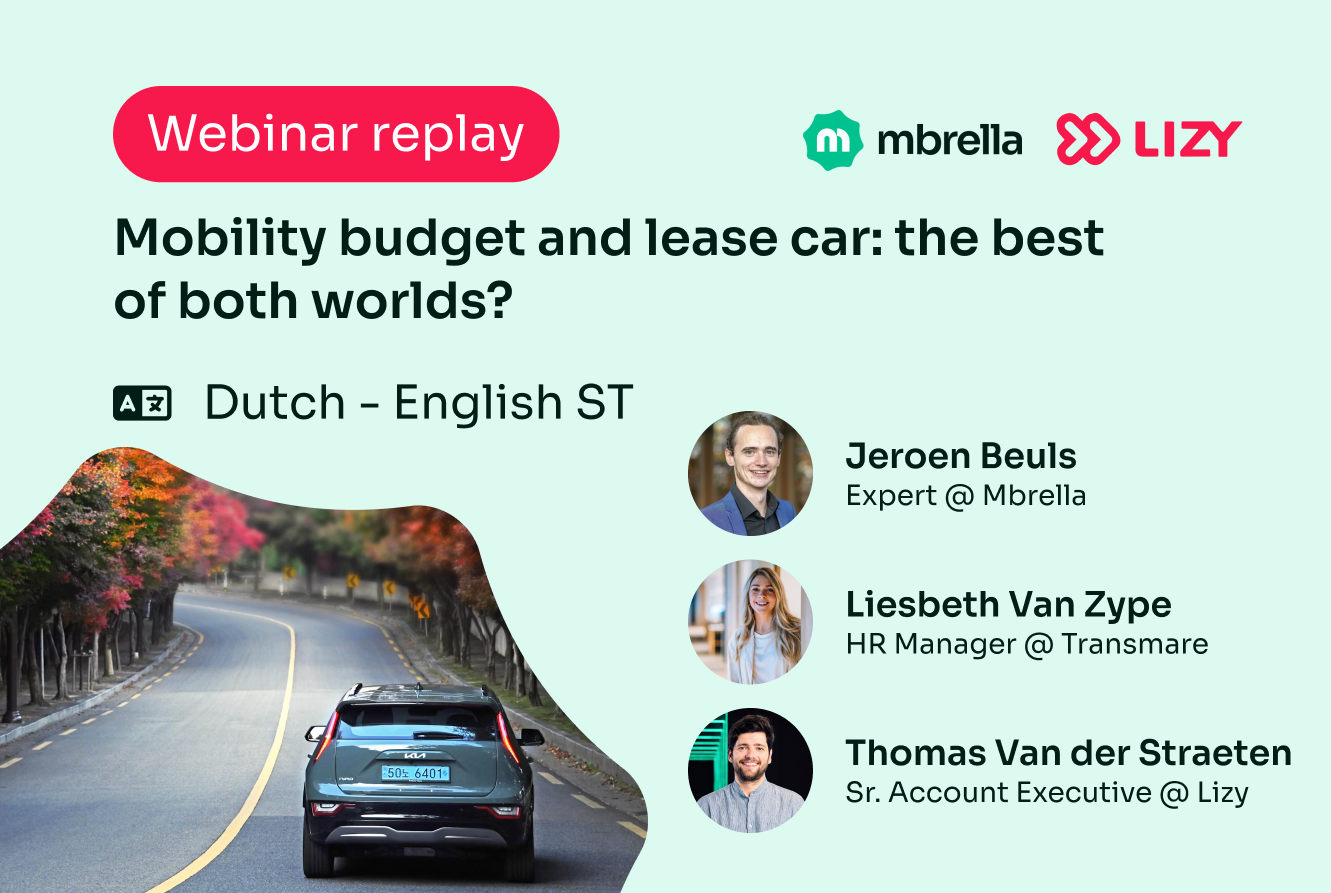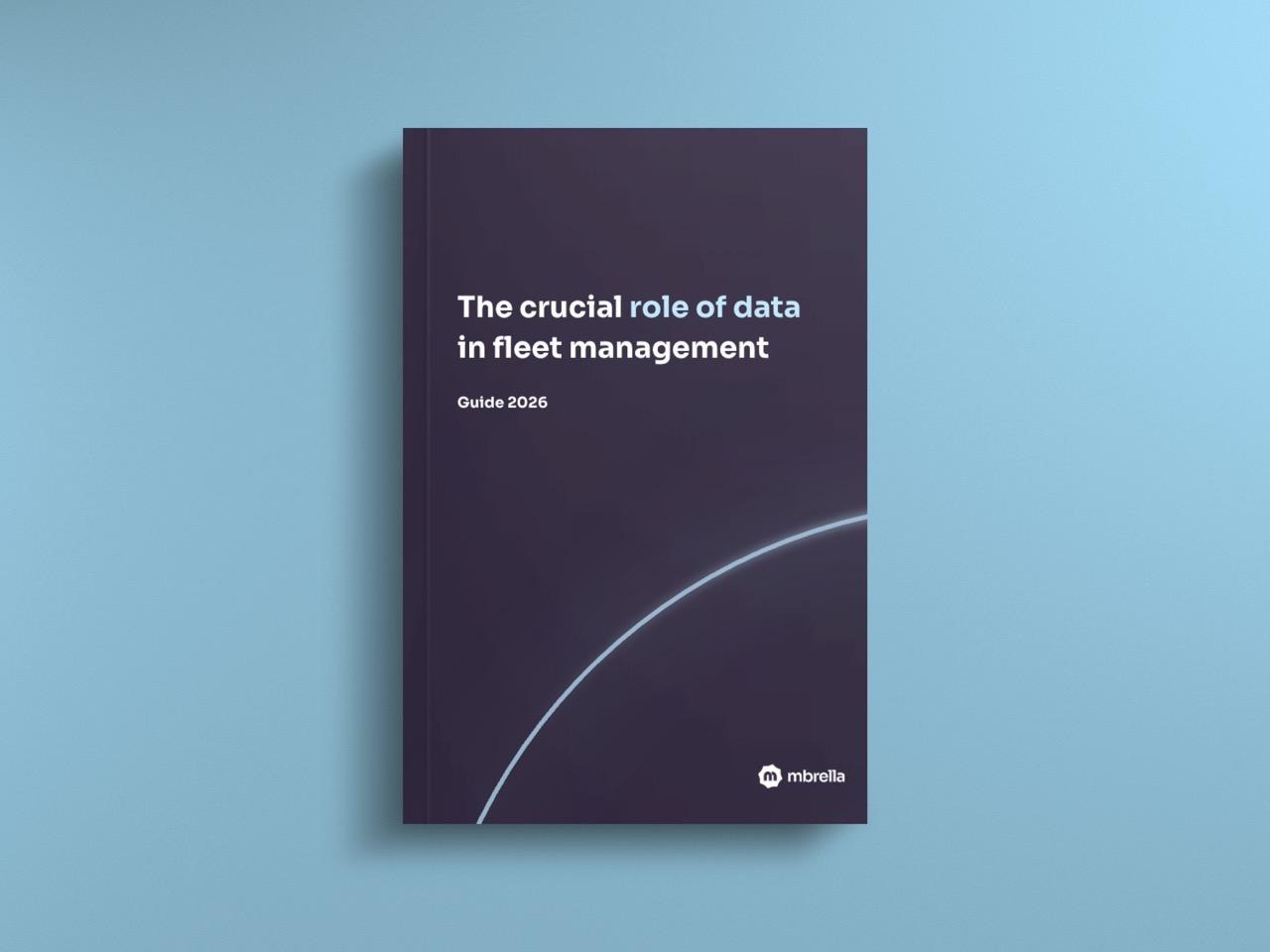Commuting Allowances
Table of contents
What are commuting allowances?
Commuting allowances are allowances that employers give to employees to cover the costs of traveling between their place of residence (domicile address) and their workplace. A detour, for example to go shopping, will not be reimbursed. The shortest route between the place of residence and the workplace is reimbursed. These benefits can take several forms and are intended to compensate employees for the time and costs associated with the daily commute.
For your information: With the bicycle allowance, the shortest route does not have to be chosen. In consultation with the employer, the shortest route may be deviated from. Here, for example, you can choose the safer but longer route.
What commuting allowances are there?
Below are some common types of commuting allowances:

Public transport travel allowance: Employees who travel by public transport receive reimbursement for their travel costs. A third-party payment arrangement or an intervention in travel costs can be used based on the mandatory (sectoral) rules;

Bicycle allowance: Employees who cycle to work must receive a bicycle allowance. This is a compensation per kilometer cycled;

Mileage allowance for your own transport: This is a reimbursement per kilometer driven. The employee receives a certain amount per kilometer that he or she travels between home and work with his or her own vehicle (e.g. car, foot, scooter);

Carpool compensation: Employees who carpool can receive compensation, depending on whether or not the carpool is organized by the employer.
What are the (para)fiscal rules?
In Belgium, tax rules apply to commuting allowances. It is important for both employers and employees to be aware of the applicable rules and to properly administer reimbursements. These tax rules are often drawn up at company or sector level. So be sure to check out the sectoral and company collective labor agreements.
In general, it can be said that many reimbursements are tax-free for employee and employer up to a certain amount. No social contributions are paid on these allowances. Furthermore, in most cases these reimbursements are fully deductible as actual professional expenses in your tax return.
When do I have to pay a commuting allowance?
Company car
If an employee has a company car available, there is no obligation to pay a commuting allowance. The employee already receives a company car (with fuel or charging card).
Public transport
Compensation
There is an obligation at national level to intervene when the employee travels to work by public transport. Companies must reimburse at least 71.8% of the cost of the train subscription (February 1, 2024). These rates can be found on the NMBS website. One of the following rules applies to other public transport (tram, metro, bus, water bus). When the:
Price of transport is independent of distance, a compensation of 71.8% of the price is applied;
Limitation to the intervention provided for the train for a distance of up to 7 kilometers. That corresponds to 43 euros per month.
The price of transport depends on the distance, the compensation corresponds to that for the train;
Limited to 75% of the real price of transport.
The above only applies if the sectoral joint committee has no regulations regarding public transport reimbursements.
Third Party Payer Agreement
Reimbursements for public transport are most easily paid via a third-party payment scheme. Through this scheme, employees can directly apply for a subscription from the chosen transport company in Mbrella. The transport costs are charged directly to the employer, so there is no longer a need for reimbursement. This means that the employer no longer has any administrative burden. With a third-party payment arrangement, the employer must pay at least 80% of the cost of the subscription. The remaining 20% of the cost of the subscription is paid by the state. This gives the employee free public transport. A win-win situation!
For your information: The VAT on public transport subscriptions of 6% is deductible by the employer.
Bicycle allowance
As an employer, you are obliged to pay a bicycle allowance to employees who come to work with a bicycle (bicycle, electric bicycle, speed pedelec, cargo bike, etc.). This does not apply if the employee already receives another commuting allowance. For example, if the employee has an NMBS annual season ticket, there is no obligation to pay a bicycle allowance.
Companies that did not pay a bicycle allowance before May 1, 2023 are covered by the Collective Labor Agreement 164. This collective labor agreement obliges these companies to provide a bicycle allowance of 0.29 euros per kilometer (2025), with a maximum of 40 kilometers per day.
All other companies follow the bicycle allowance rules as determined in the company collective labor agreement or in the joint committee.
As an employer, in addition to your mandatory minimum, you can usually also provide more bicycle allowance tax-free to employees, in order to (even more) promote cycling to work. The maximum exempt bicycle allowance is 0.36 euros per kilometer with an annual limit of 3,610 euros (2025).
For your information: Since July 1, 2024, companies in PC200 must pay a minimum of 0.27 euros per kilometer bicycle allowance, with a maximum of 40 kilometers per day.
Mileage allowance for your own transport
Employees who come to work on foot, in their own car or with a mobility device (e.g. scooter) are not entitled to a commuting allowance.
For your own car, an obligation is often drawn up in the joint committee, so-called the social subscription. So don't forget to look this up!
If this is not the case, or the employee travels to work in a different way. A total compensation can be given to the employee up to 500 euros per year tax-free (2025). The reimbursement for professional kilometers is often followed here.
For your information: Professional travel with your own car can be reimbursed tax-free. Depending on the joint committee, it follows one of the two following compensations:
- Quarterly adjustment 0.4320 euros per kilometer (April 1, 2025 - June 30, 2025)
- Annual adjustment 0.4415 euros per kilometer (July 1, 2024 - June 30, 2025)
Carpool allowance
Compensation can be given to the employee depending on whether the employer organizes the carpool or not.
- Organized communal transport from the employer (e.g. internal carpooling system or office bus): Tax-free up to the price of a first-class train subscription for the same distance (Adapt);
- Organized carpool from the employee: Maximum €500 per year tax-free. (See: “Kilometer allowance for own transport”)
What about the federal mobility budget?
If the employee has opted for the federal mobility budget, there is no longer an obligation to provide the following commuting allowances:
- Bicycle allowance;
- Public transport allowance;
- Reimbursement for organized communal transport.
These allowances must then be requested, if desired, via the federal mobility budget by the employee. In other words, these allowances cannot be paid in addition to/on top of the federal mobility budget.
An exception exists for employees who already received this allowance for a period of three months before applying for his/her mobility budget. These employees can continue to receive this compensation on top of the mobility budget. This is a choice of the employer whether or not this is permitted.
For your information: Within the federal mobility budget, an employee can apply for a commuting allowance for his travels on foot or with a mobility device (e.g. scooter). This compensation, within the federal mobility budget, then follows the regulations for the bicycle allowance (See bicycle allowance).
What steps do I need to take for this?
A mileage allowance must be registered. This registration serves as the burden of proof for the social inspection. In Mbrella you can use the commute planner to provide this burden of proof. The commute planner not only serves as the burden of proof, but is also automatically linked to the payment of the compensation. In Mbrella you indicate what fee you want to pay, who has access to it, and what amount is linked to this. There is hardly any work for the HR manager throughout the year.
Finally, a third-party payment agreement must be agreed between the employer and the public transport company. The application for a third-party payer agreement can be made directly via Mbrella. Your request will then be processed and confirmed automatically. Afterwards, employees can purchase subscriptions in the Mbrella platform.
Avoid the hassle of finding the right formula for your TCO.
With our free TCO Calculator template you can start calculating your mobility budget in no-time.
Related content

Mobility budget and lease car: the best of both worlds?

Data in Fleet Management Guide 2026
Ready to try our product?
Start offering flexible and green mobility to your employees without the burden of administrative hassle. Get in touch for a full demo of our platform or sign up for a free account.





FAQs
Every question has an answer. Can't find the answer to your question? Let us know!

Mbrella Commute is a module of Mbrella that helps to automate kilometer allowance calculations and reimbursements and to centralise public transport subscriptions. It's very popular amongst larger clients such as Ikea, RTBF, ING, Danone, Orange, etc.

Yes, in Mbrella it is possible to create different kilometer allowance rates for different time frames. This is a unique feature, that makes sure that all allowances within a certain period get the correct amount, no matter when they were created.

Depending on the reimbursement history of the company to the employee the bike allowance, the public transport reimbursement, the employer organized carpool reimbursement and the provision of a company bike can be on top or within the federal mobility budget if the allowance was there at least 3 months before the request for the federal mobility budget.

Yes, you can reimburse commuting expenses without activating the federal mobility budget. Employers can provide standard commuting allowances for travel between home and work, covering public transport costs, car expenses, or cycling allowances. These reimbursements are separate from the mobility budget and can be offered directly according to sectoral policies and Belgian tax regulations.

Yes, employees can easily add commutes and mobility expenses through the Mbrella app.

Within the federal mobility budget, expenses include costs for eco-friendly cars, public transport, bicycles, and housing near work. These are covered under the budget's three pillars. In contrast, commuting allowances are direct reimbursements for travel between home and work, and follow standard sectoral policies and tax regulations.
